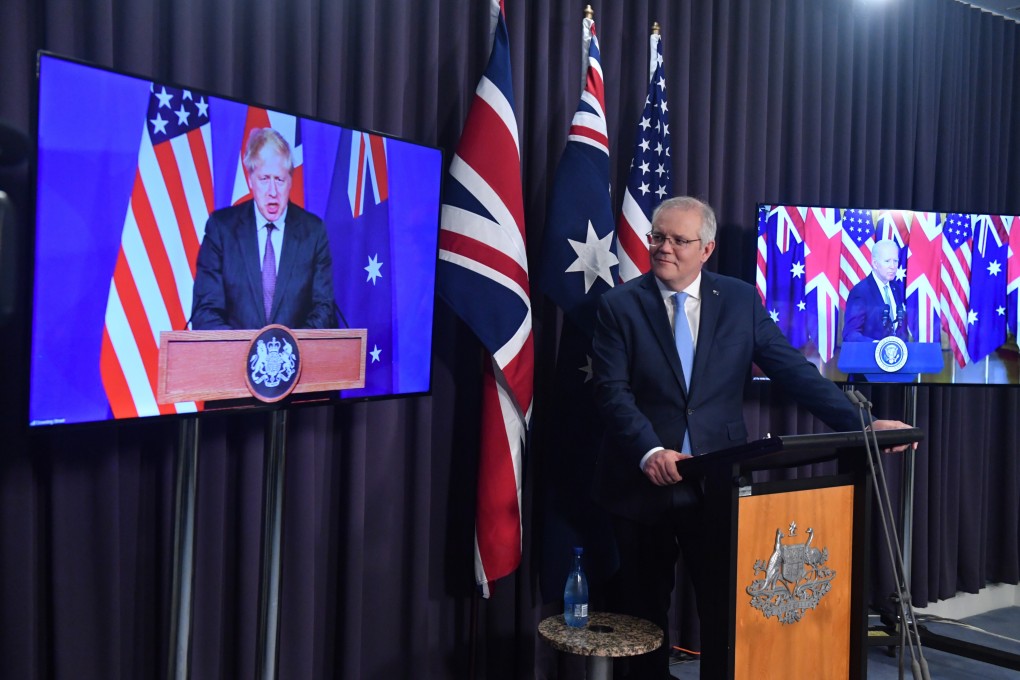US allies’ move on nuclear submarines for Australia a boost to region’s hard power, analysts say
- Australia is set to build eight submarines using sensitive nuclear technology from the US and Britain, in an agreement largely welcomed within the region
- The AUKUS pact is seen as giving teeth to existing accords that critics previously said did not reflect the changing balance of power in the Indo-Pacific

It is also likely to prompt calls to give greater force to existing defence alliances and security groupings that critics have described as having ambiguous functions and aims that do not reflect the changing balance of power in the region.
These could include groupings such as the Quad, the Five Eyes intelligence-sharing alliance and the long-standing Five Power Defence Arrangements (FPDA), a Southeast Asian-Anglosphere grouping nicknamed the “durian pact” for its geographical focus and unusual character.
“This is a surprising and extremely welcome sign of the Biden administration’s willingness to empower close allies like Australia through the provision of highly advanced defence technology assistance – something that Washington has rarely been willing to do,” said Ashley Townshend, director of Foreign Policy and Defence at the United States Studies Centre at the University of Sydney. “It suggests a new and more strategic approach to working collectively with allies on Indo-Pacific defence priorities.”
Wu Shang-Su, a research fellow at S. Rajaratnam School of International Studies in Singapore, described the development as “remarkable” politically and militarily.
“Militarily, the large territory and location create the demand for Canberra’s underwater fleet to travel fast without the limitation of fuel and battery,” Wu said. “Nuclear power is the most available technology to enhance the Australian submarine fleet. The submarines will endow Canberra longer military presences overseas and faster response capacity and capability.”